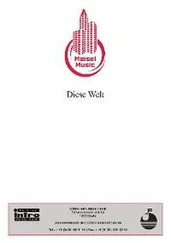“Who thinks that?” Albert said.
“Stupid people,” Patrick said.
“I don’t believe you. Are you sure?”
“Absolutely.”
“Who are they?” Isaac said.
Patrick opened his mouth and then shut it. “Let’s try another one. This is a bit different.”
He pulled back the Ad-Guard, then picked up the remote control with both hands. Coming off the weed had had a strange impact on his relationships to children. He had discovered a desire to pass on knowledge from his own life. Knowledge from his own life . That was a new concept. He had spent two unstoned days preparing the video. He should have been helping to reanchor the fences, but his shoulder, which was known to dislocate at the slightest encouragement — in the bath, reaching for the contraband shampoo, for example — kept him indoors. He recorded hours of adverts and tried to ignore the distant dop-dop-dop of the post rammer. It’d been twenty years since he and Don had sat down with a map of their farm’s fifty acres — dividing it up with a ballpoint pen. They had lifted tons of freestone into the back of their narrow Bedford van and driven it across the fields. Slowly, shirtlessly, they had dug trenches, stacked stones, Tetris-style, and said almost nothing to each other, except in the pure language of manual labor, coming home each day sunburnt and ennobled — and in truth, everyone else found them pretty irritating, with their tiredness-as-honor shtick, as though they could return to the big house after a full day’s real work and just drop like, yes, stones, expecting admiration and exemption from washing up.
He pressed play on the remote. The screen went blank, then the Channel 4 logo appeared. “Here we go.”
It was a long car advert — thirty seconds — with a soundtrack of intricate electro. It showed a man in a silver car disintegrating into atoms, then re-forming as a toboggan team being led by the same man, then disintegrating again and re-forming as a snow leopard climbing an impossibly steep slope, the man a glint in the animal’s eye, then disintegrating and re-forming as two ballet dancers, the man and a beautiful Eastern European — looking woman, spinning on a lake, performing a difficult lift, before turning back into the car in a Nordic landscape, with the man driving but, now, the ballet dancer in the passenger seat, smiling, brushing snow off his shoulders. The car was called the Avail.
Patrick paused the video. He hadn’t noticed but Isaac and Albert were standing up.
“Motherfucker,” Albert said.
“Brilliant,” Isaac said.
They hugged.
“What you have to remember is that every advert wants you to think something; what does this one want you to think?”
“The car is an amazing car,” Albert said.
“What a car,” Isaac said, putting his arm round Albert’s waist.
“You see what it’s done to you?”
Don was watching from the doorway. He was wearing a jumper with the sleeves rolled up. He had stripes of mud on his forehead and cheeks. His beard had an actual twig in it, which seemed, to Patrick, a bit much.
“What’s happening, Pat?” Don said, squinting at the frozen image on the screen.
“Media Studies.”
“It’s amazing, Dad,” Albert said, and he ran to his father and lightly headbutted his stomach.
“Oh-kay,” Don said, squeezing his son’s shoulder, “and what are you learning about?”
In 2002, Don had invented the Ad-Guard after Kate, age seven, had learned a dance to an advert for yogurt. Pat remembered Don’s speech at the meeting that evening, where he said he could whistle the tunes to, he estimated, nearly two hundred adverts, and he sang (“Everyone’s a fruit and nut case, it keeps you going when you toss the caber …”), delivered slogans with perfect intonation (“It looks and tastes as good as fresh meat”), and then he said: “Wouldn’t it be better if our children could remember the words to poems, or songs, or stories? ‘Loveliest of trees, the cherry now / Is hung with bloom along the bough / And stands about the woodland ride / Wearing white for Eastertide.’ ” This was in the days when his speeches really carried weight. He said he wasn’t suggesting they get rid of the TV entirely and — to seal the deal — he revealed his Ad-Guard, already made and ready to be glued on, cut from a square of shower curtain, attached to a rail, translucent enough to tell when adverts had finished, but misty enough to hide their content.
“I thought it’d be good to teach them how to understand adverts,” Patrick said, watching Don’s eyes narrow, “what they’re trying to achieve — and, as a result, remove their power.”
Both men knew that Don, with dirt on his forearms, grit in his T-zones, had the authority. “ Whatever experiences we have — no matter how we try to mediate them — affect us,” Don said, putting his hand on top of Albert’s head, “and particularly young minds in ways we can’t comprehend.”
Isaac watched, looking back and forth as they spoke.
“But at some point they’re going to have to face seeing adverts,” Patrick said. “They should know how to deal with them.”
“That’s just it, Pat — that’s an assumption I’m not willing to make. Everything we see is a choice.”
A vein forced its way to the surface of Patrick’s neck. There were still another six adverts on the tape. He had planned the lesson so that, at the end, there would be a couple of funnies to lighten things up: one about a talking sloth and another about an army of dancing bacteria.
Kate’s first class was history. Leanne — they used tutors’ first names — was a large lady who kept her gray hair in a neat plait and wore local artists’ brooches in trapezium and rhomboid shapes. Her teaching style was to speak for the entire hour, with the implicit understanding that students were free to tune in and out, at will. Today she was talking about Von Stauffenberg’s failed assassination attempt on Hitler. When she talked about a briefcase with a bomb in it, she lifted up her own briefcase to help the class understand. When she read Nazi propaganda, she allowed herself an accent.
Kate’s mind kept drifting, trying to puzzle out the memory of her mother at the typewriter, writing a letter to someone who was in the same room.
Later, at lunch, she realized she had left her packed lunch in the fridge. Blaming Albert, she wished him a painful, head-led landing on the bottom step. Knowing that her sandwiches, unclaimed for a whole morning, would now be under communal jurisdiction, she made her way to the canteen. That was where she had first met Geraint. On that occasion also, it had been her brother’s fault: as part of his campaign to make her terminally late for college, he had hidden all Tupperware and plastic wrap. It was a pleasing irony that her brother’s attempts to sabotage her life had led to her meeting her boyfriend.
She remembered that day: it was not only her first time in the canteen, but her first time in any canteen. Her initial impressions of it had been largely as expected: blue trays and yellow food — chips, garlic bread, breaded turkey burger. The only hot vegetarian option had been cauliflower cheese, so she had picked that, with waterlogged carrots. After paying, she looked for somewhere to sit, realizing that she knew this moment too — this awkward searching for a seat, peering around half-casually. There was something comforting about finally taking part in mainstream rituals. No one had invited her to join them. The only other person sitting on their own had been Kit Lintel, well known in college though not well liked; Kit practiced parkour, or as he called it, the art of movement , around the blocky college parking garage stairwells and could often be seen standing neatly on the corner of a high wall with his arms out like Christ the Redeemer. She sat at an empty table.
Читать дальше












